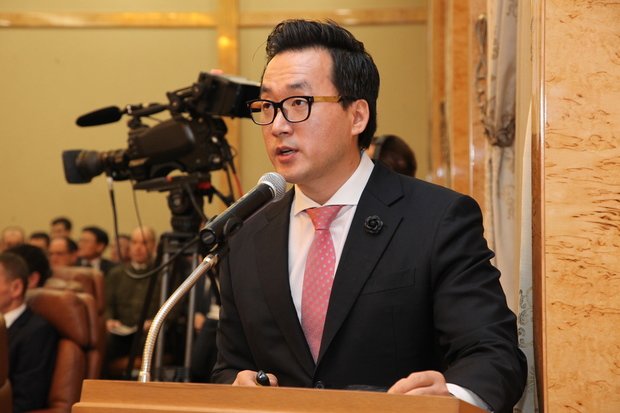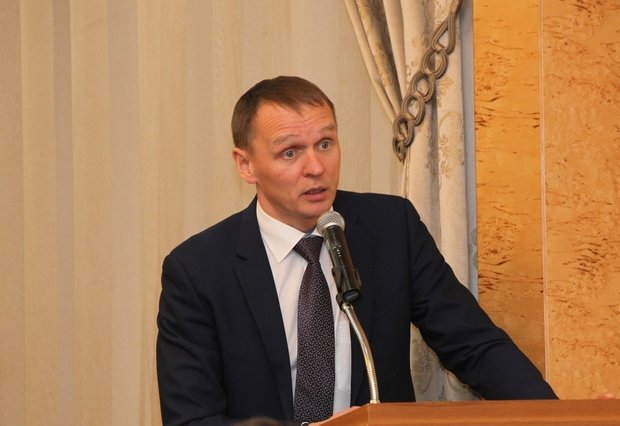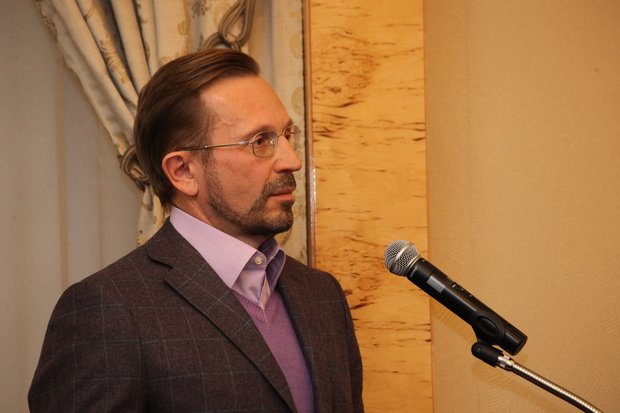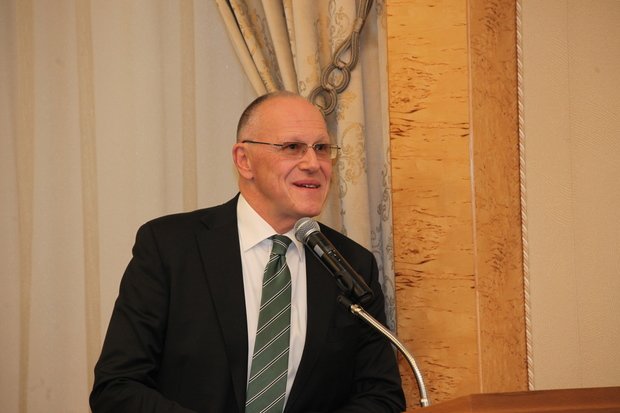Khimgrad to host a huge laundry
Korean factory making automatic valves is going to appear in Tatarstan
Apollo Group from Korea is going to invest in the factory in Tatarstan. It became known at the next meeting of the Board of Directors of Tatneftekhiminvest-holding. Swiss-born Sika also announced its plans to appear in the republic. A huge laundry for overalls is to open in Khimgrad technopolis almost in a week. Realnoe Vremya tells the details.
Korean Apollo to invest in Tatarstan
Singing of a memorandum of understanding between Tatneftekhiminvest-holding and Apollo Group of Companies from Korea was the major event of the next council of directors of Tatneftekhiminvest-holding. The meeting took place in the Cabinet of Ministers under Tatarstan President Rustam Minnikhanov.
Apollo Group specialises in the production of automatic valves, manufactures industrial fittings for oil refining and other industries.
Deputy Director General of Apollo Group Taegeun Kwon stated during the presentation they wanted to become one of the best enterprises in Russia. 1,157 employees work in the company's team today. The team of experts consists of 68 people who have studied in such corporations as General Electric.
The deputy director said their enterprises were equipped with the most advanced capacities and management systems. It enables to annually generate sales equal to $200 million. Taegeun Kwon also noted that Apollo was regularly awarded in Korea for high production results.
Apollo Group is going to consecutively localise factories in Russia. The enterprise is already present on Tatneft PJSC's sites in Tatarstan.
The company has a long-term development plan. The enterprise is going to fulfil projects to manufacture pumps, compressors, high-pressure vessels, pipes for oil and gas mains.
Taegeun Kwon told they were planning to invest in Russian business in the next five years.

''I think the project is very good,'' Tatarstan President Rustam Minnikhanov assessed the intentions of the Korean company. ''It's been our third or fourth order,'' Director General of Tatnfet Nail Maganov noted.
Another industrial giant – Sika chemical concern from Switzerland – announced its intention to localise a factory in Tatarstan. Director of the company's Kazan office Vadim Belyaeyev told about it. Sika has been developing in Russia since 2003, active investments started only 4 years later. ''The Swiss are quite reserved people, it's difficult for them to make quick decisions,'' Belyayev explained. Today the only factory of the company in Russia is located in Lobna (Moscow Oblast). According to Belyayev, the factory in Tatarstan will be export-oriented. And the company is interested in products of Kazanorgsintez and Nizhnekamskneftekhim as its feedstock for its production.
Expensive isocyanates and need for polyethers
The next speaker, President of Technoniсol Sergey Kolesnikov defined their interests at the beginning – polystyrene, isocyanates, simple polyethers. Polystyrene is the main feedstock for the company, the Nizhnekamsk chemical giant is the main supplier.
''Nowadays we achieved 3,000 tonnes of polystyrene consumption, our share of purchases at NKNKH is 85-90% of all feedstock consumption,'' Kolesnikov said. In addition, he noted the officials of the company saw possibilities for further growth and thought to reach the consumption of up to 100,000 tonnes. The company also started to invest in foam rubber. The product is going to be used including to heat big liquefied gas warehouses.
''These technologies are unique because they have the lightest weight and best lambda. The products are innovative,'' Kolesnikov explained.
Isocyanates, which are in deficit, are needed to manufacture foam rubber. It is another problem for the company. ''We don't have isocyanates, we have to purchase them. And the price for isocyanates in the market has almost doubled since the last year, while the construction is rapidly growing,'' Sergey Kolesnikov complained.

The company also focuses on the production of spray foam. ''60% of spray foams in Russia are made outside the country. In addition, there are basic chemical factories,'' Sergey Kolesnikov told about the problem. Technoniсol built the first spray foam factory in Ryazan, the company plans to launch the next factory in Alabuga next year.
''Moreover, we use simple polyethers. We're very interested in them. By our calculation, the company needs 7,000 simple polyethers until 2024.''
Huge laundry to appear in Khimgrad
Director General of Cotton Way Aleksandr Utkin's speech was dedicated to the textile rental industry that has been existing in the world for over 50 years. The case is that leading companies don't have their own overalls for their employees. This prerogative is given to so-called providers. They care about everything – they purchase, liquidate, store overalls, restore their chemical characteristics, find best decisions for a client. According to Utkin, a provider is cheaper, more effective for enterprises and helps companies avoid capital investments.
Cotton Way is a lasting partner of Russian Railways, it cleans bedclothes for long-distance passenger trains. The company also works in Tatarstan. In 2012, all medical establishments of the republic switched to the rental model. As a result, the hospitals saved 100 million rubles.
''The quality is very good, and, most importantly, people are glad. The sheets were usually ripped and dirty. There isn't such a problem now,'' Rustam Minnikhanov praised Utkin.
The company's factories are mainly located on rented sites. The factory in Sochi is their property. Their own factory will also appear soon in Tatarstan. The first line will open in Khimgrad on 5 December. Utkin says the Tatarstan factory will exceed its neighbouring regions in terms of capacities.

The uniqueness of Cotton Way's work is that they chip their products. This practice is rarely used around the world. The solution allows to not only keep qualitative accounts but also personalise every item by its size. In addition, the movement of employees in the enterprise can be followed if somebody wishes. Movements of employees in the enterprise can be counted.
''The topic is very interesting,'' the Tatarstan president concluded the speaker's speech.
''Tatarstan is more advanced region''
Representative of Smart Silicate company from Germany Boris Kemp told about a special solution for overhauls, fire protection and insulation in detail. The product is called Flexum 15. It's an elastic mineral sealant that conserves its characteristics in the water. It can be used for water insulation, bridging cracks, protection of chemical and oil refining facilities, roads, buildings and bridges, water supply systems and so on from corrosion. ''It's a needle matrix that deeply penetrates the material's structure,'' Boris Kemp explained. Tatarstan Minister of Construction Irek Faizullin says the republic is already trying to use the material at work.
''To work more, deeper, wider,'' is the main point of Director General of Emerson Nikolay Shestakov's speech. In Russia, the corporation has a big factory in Chelyabinsk. In Tatarstan, Emerson cooperates with Tatneft, TAIF, TANECO, educational and scientific organisations as well as big energy enterprises. For instance, the company implements a project that diagnoses water equipment with vibration in the Nizhnekamsk Hydropower Plant online, which is first in Russia.
''We work with the Almetyevsk State Oil Institute to equip it with special software for 3D design of underground reservoirs that Tatneft builds,'' Shestakov told.

The cooperation with Tatarstan is outside the plans of the National Computer Corporation. Today the company organises its activity in three areas: distribution, production of hardware systems, creation of software and its integration, Vice-President of the company Aleksey Kopotilov told. The company's revenue totalled 160 billion rubles last year.
''Do you have 160 billion of revenue with 5,800 people? It is very much,'' Minnikhanov was surprised.
''We know how to do so,'' Kopotilov answered but added that about 70% come from distribution.
The company already works in Tatarstan with ICL, Tatarstan Ministry of Communications and now expresses a desire to become a resident of Innopolis. ''Tatarstan is more advanced in IT in comparison with key regions,'' Kopotilov assessed the republic's level.